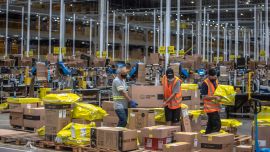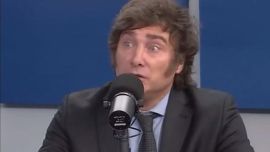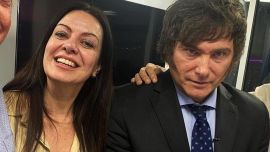After an extended vacation in the Argentine Patagonia, President Mauricio Macri went back to work with a full agenda that included an all-important meeting with Brazil’s Jair Bolsonaro this week. Macri, who had spent two weeks out of Buenos Aires, returned to a country still battered by economic crisis ahead of a defining year for his presidency.
The highlight of the week was Macri’s trip to Brasilia for what became Bolsonaro’s first official visit from a head of state on Wednesday. While the Argentine president had been criticised for missing Bolsonaro’s inauguration ceremony on January 1st, body language at the Palacio de Planalto suggested good chemistry between the two. At stake was the future of the Mercosur regional trade bloc and a response to President Nicolás Maduro of Venezuela.
“We support President Macri’s efforts to lift the Argentine economy and integrate it with the world,” Bolsonaro noted in his press conference, “there are no taboos about our bilateral relationship, what moves us are concrete developments for the wellbeing of Argentines and Brazilians.”
Macri, who had built his successful foreign policy on the basis of multilateralism, was under pressure after Brazilian Economy Minister Pablo Guedes had indicated Mercosur was not a priority for the Bolsonaro administration. “We spoke about the necessity to modernise Mercosur and move toward a space of integration that adapts to the challenges of the XXI century while taking advantage of the opportunities of the world,” said Macri during the press conference, echoing Bolsonaro’s own comments which noted the intention to “make Mercosur relevant in terms of foreign policy,” adding, “under a feeling of urgency.”
Another key point had to do with the position with Venezuela, which continues to endure a crippling economic and social crisis that has led to the mass emigration of some three million. President Maduro began a second term on January 10th that was largely repudiated across the region, with Macri and Bolsonaro as two of the most critical.”We reaffirm our condemnation of Maduro’s dictatorship. We will not accept this affront to democracy,” President Macri told reporters in Brasilia with Brazilian leader Jair Bolsonaro standing nearby.
“The international community has already recognized that Maduro is a dictator who seeks to stay in power through fictitious elections, imprisoning opponents and leading Venezuelans into a desperate situation,” he said. Only a few days earlier, Bolsonaro had called Maduro a “modern-day Hitler” and declared that Brazil, like Argentina, was on the frontline of “the defence of liberty” in Latin America.
Both Brazil and Argentina are part of a country grouping in the Americas that spurns Maduro’s rule and which recognises Venezuela’s largely sidelined opposition-controlled parliament as the “only legitimate institution” in the South American nation.
After making his way to Buenos Aires on Wednesday, Macri flew to Chaco, one of the provinces most battered by intense flooding along with the rest of the northeast and the Paraná basin, with losses estimated above US$2 billion. Macri flew over the troubled areas in a helicopter alongside Chaco governor Domingo Peppo, and Defence and Security Ministers Oscar Aguad and Patricia Bullrich. Upon his return to Buenos Aires, the President gave a brief press conference where he noted Argentines “are going to have to get used to this as it will continue to happen in different areas of our country [as] our infrastructure is insufficient to contain these situations.” Macri seemed to be getting into campaign mode, adding, “we are going to have to find a way to generate the resources to build the necessary projects.”
Indeed, Macri and his Cambiemos (Let’s Change) coalition will now have to concentrate fully on this year’s electoral process, with the first election—the PASO primaries— slated for August 11. Inflation finished Macri’s third year in office at a record 47.6 percent, while the economy remains in a recessionary trend. Before dealing with his potential opponents, including former President Cristina Fernández de Kirchner, Macri and his key aides—Cabinet Chief Marcos Peña and political advisor Jaime Durán Barba—must find common ground with Buenos Aires province Governor María Eugenia Vidal. Pro party’s political wunderkind, Vidal has put together a commission analyzing the possibility of splitting provincial elections from the general elections, allowing her to differentiate herself from the President and his high levels of negative image. While Vidal remains a key ally, along with Buenos Aires City Mayor Horacio Rodríguez Larreta, the economic crisis has eroded support for Macri’s coalition while helping Fer - nández de Kirchner grow in early polls.
With Bolsonaro in his corner, and more importantly, the Brazilian economy returning to growth, Macri can continue to dream with reelection.























Comments